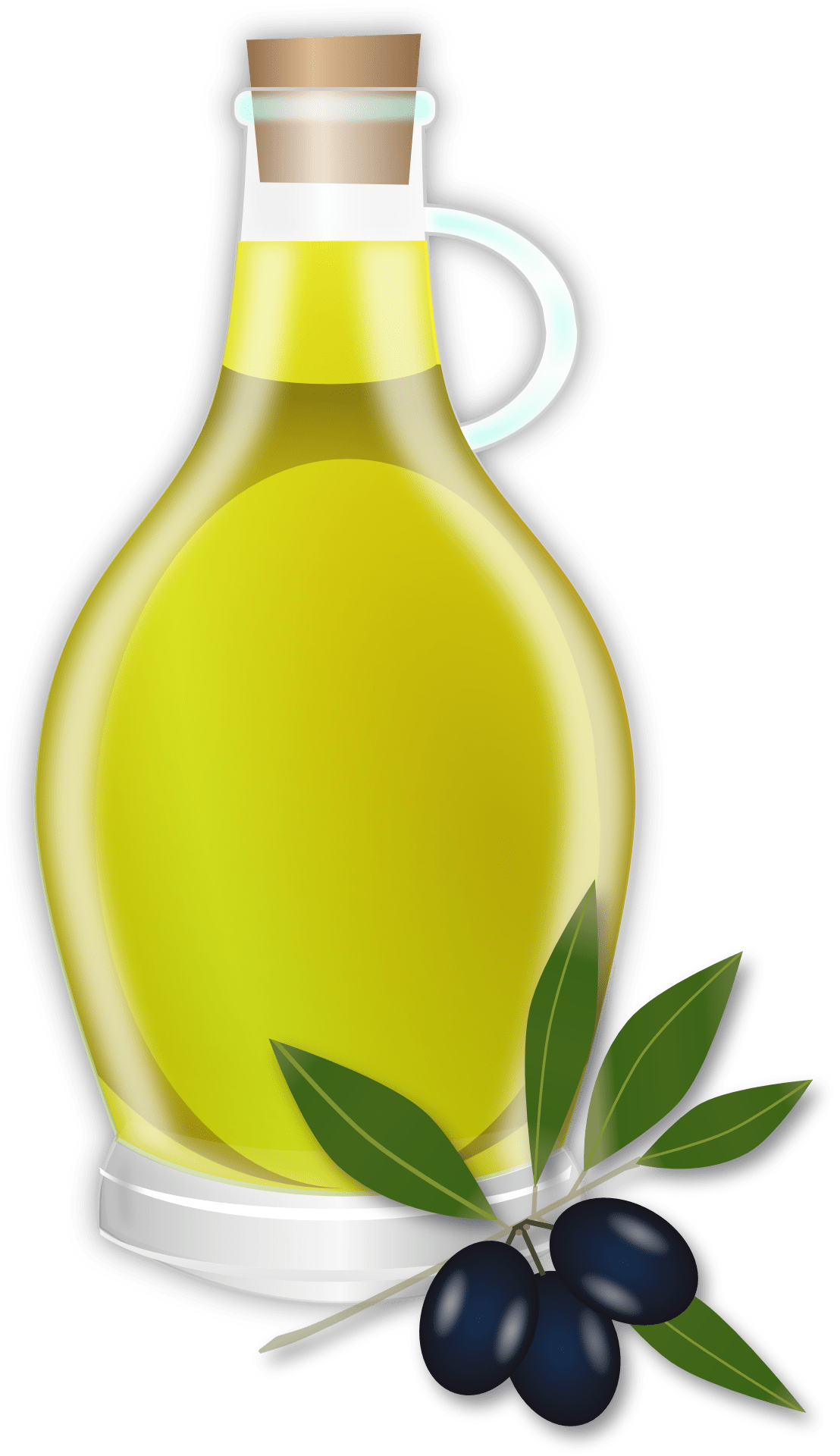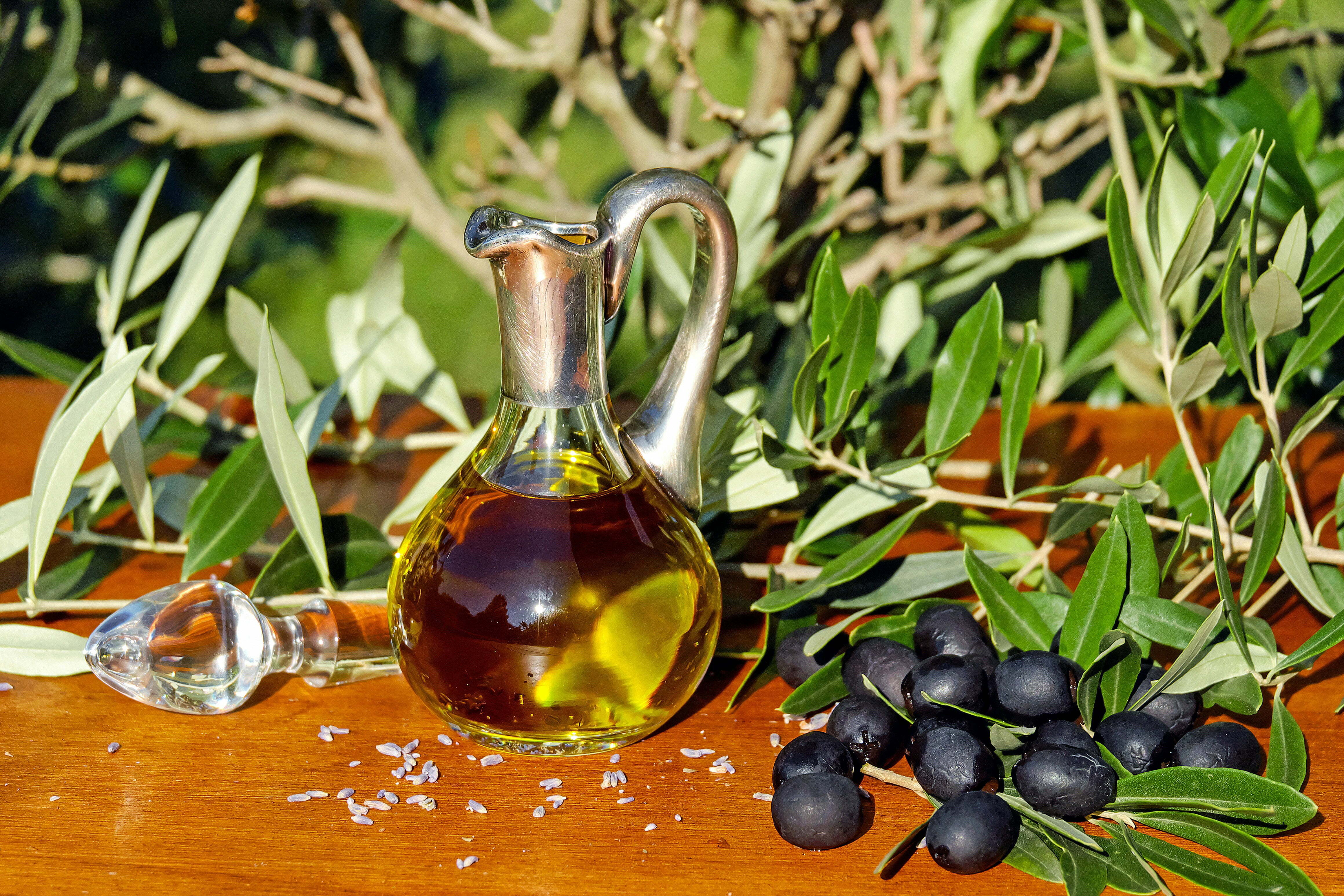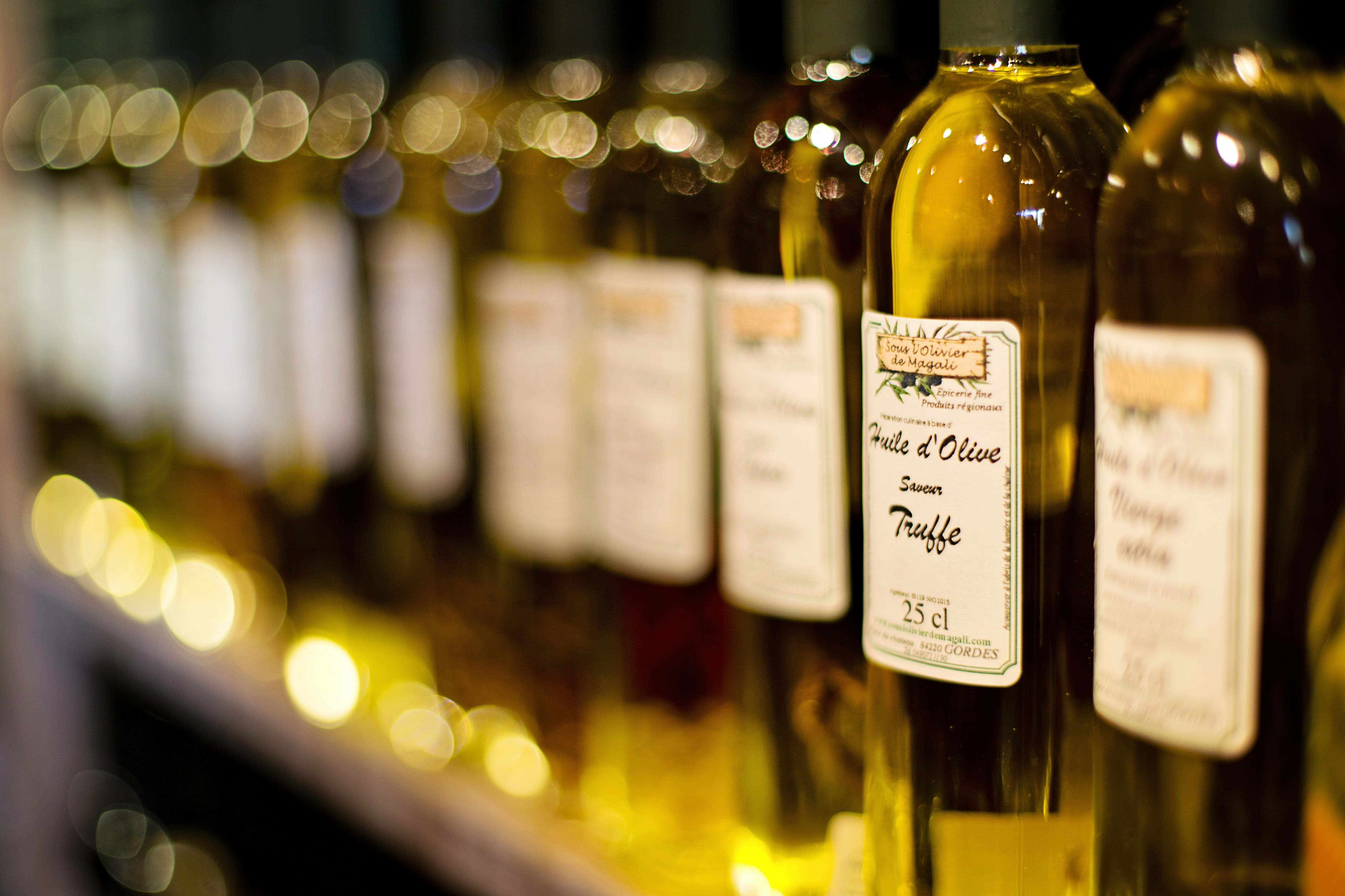Table of Contents
How Long Does Olive Oil Last- Everything Summed Up!
Bought too many bottles together and wondering How long does olive oil last? We have all been there. Also, when we clean the pantry, we often find some bottles leftover on the corner shelf that go unnoticed.
You might be left thinking whether olive oil gets nasty after a period— or if you can keep it indefinitely for cooking purposes.
In fact, though olive oil lasts a prolonged time, it does expire after a given time. This article examines- How long does olive oil last? Or the shelf life of olive oil and how to identify when it has gone poor to consume.
How long does olive oil last? Shelf life

Botanically, the olive has been deemed a fruit. Fruits also have a shelf life, and keeping this in mind, so does olive oil. There is always a point when it becomes rancid and does not taste well.
Mostly olive oils remain suitable for 18–24 months from the date they have been stored bottled. Extra virgin olive oils are slightly less processed and typically last for less time, approximately 12–18 months from the date they’re stored in bottles.
Beyond these timespans, olive oils might grow bitter or acrid notes, which might clearly show up in the dishes you cook in ways you might not relish.
Some olive oil bottles display a best-by or bottling date. If you do not witness these dates, it might be a great idea to label the olive oil bottles with the date of buy. This will help you slightly sense how much time it has been resting in the pantry.
How to store Olive oil
You must store olive oil in a dark, cool place — such as a pantry having a door, a refrigerator, or a cabinet. Bear in mind that it might appear a bit hazy when you store olive oil in the refrigerator. This is a typical reaction to chillier or cooler temperatures and does not imply that the olive oil has become rancid.
Typically, it also helps if the bottle is created using a darker glass, such as amber or dark green, as this will be useful for blocking out light, which boosts oxidation. This might be something to look for when you are at the grocery store.
For those who are not familiar with oxidation- it is a cellular process that can promote aging. When olive oil oxidizes, it can fasten the disintegration of fat molecules. Apart from light, olive oil can also be corrupted by heat exposure or contact with oxygen.
This is the reason a cool, dark place is perfect for storing the olive oil — and make foolproof that it has been correctly capped once you have opened it. Ultimately, if the olive oil comes sealed in a plastic polyethylene receptacle and you intend to keep it around for the time being, it might be wise to move it to a tin or dark glass container. It keeps more suitable this way.
If you do not cook frequently, it might also be a great idea to buy smaller bottles, particularly if you’re shopping for fancier olive oil.
How to tell whether olive oil is rancid

Now that you understand- How long does olive oil last- There are some ways to find out whether the olive oil has gone wrong.
1. Try a little taste
The most suitable way to describe whether the olive oil has gone bad is tasting it. Don’t stress, and a little taste won’t make you nauseous. If the olive oil starts tasting bitter, sour, or stagnant, it’s no longer suitable for cooking.
2. Give it a sniff
Rancid olive oil might also scent off — like putty, crayons, or Elmer’s glue — rather than fruity, bright olives. This is one more sign that it has gone rancid.
Effects of ingesting rancid olive oil
Rancid or rotten olive oil will not make you queasy. However, it might eradicate the recipe by giving it a bizarre flavor. Also, olive oil is frequently praised for its numerous health benefits. Decaying olive oil will lose some of its powerful antioxidant properties.
This occurs because it experiences oxidation; during oxidation, oxygen-containing molecules initiate a chain of chemical responses that disintegrate the antioxidants present within the oil.
While rancid olive oil will not generally deliver the same nutritional benefits, it will not make you sick. Still, it is perfect for intaking fresh olive oil to gain as much of its antioxidants as feasible.
Review the Harvest and “Best By” Dates
To learn- how long does olive oil last, you must always check- the best-by dates on the label.
Your best chance for finding out the lifespan of that great bottle of olive oil you bought on holiday in popular places for olive oil last year (or got it from the supermarket sale) is assessing the harvest or manufacture date and expiration dates. Most reputed brands of olive oil will mention these dates someplace on the packaging.
The manufacture date is a more promising indicator than the bottling date, which a few producers also include as olives are only selected to prepare oil once a year. There may be before olive oil is genuinely bottled, circulated, and placed on the store rack. Olives are typically reaped in the fall so that the newest olive oil will have a yield date from the most current autumn season.
Suggestions for how long does olive oil last or will stay refreshed differ by manufacturer. Many manufacturers will mention a “best by” date roughly two years from the harvest date, but oils can start to oxidize within one year of the harvest date. Experts’ calculation is more conventional, at 14 months. A rule of thumb may be the Italian government’s policy, which is 18 months after the date of harvest.
Keep in mind that EVOO or extra virgin olive oil grows bad faster than processed oils and that new olive oil is forever going to be more acceptable than aged oil.
While the harvest date is an excellent guideline, the most helpful way to tell How long olive oil has lasted or oil has gone bad is your insight into aroma and taste. Understanding How long does love oil lasts —and teaching your palate to comprehend oil quality can assist you in becoming a more perceptive consumer and a worthy cook.
Learn a Nominal Chemistry

Olive oil reaches an awful condition thanks to the same chemicals that cause it to be so healthy, to start with: the antioxidants.
Antioxidants contain elements like polyphenols and vitamin E, and they support us by hunting free radicals. That signifies they process molecules of oxygen that have cracked down into particular atoms, which, if unruled, can damage various body cells.
While oxygen molecules can enable us to stay healthier and hopefully stay alive longer, antioxidants themselves do not live. After time oxidation will start, indicating the oil will disintegrate down. This occurs more speedily when they are revealed to light and air, which is the reason organizations such as the California Olive Oil Council suggest selecting oils that are packaged in dark glass or tin bottles.
More FAQs- How long does olive oil last?
1. Is It Fine To Use Expired Olive Oil?
Technically, you can. But How long does olive oil last? Here’s the answer. You can cook using expired olive oil, and it should not make you nauseous or cause severe side effects. However, rancid olive oil will lack nutritional value and different health benefits, corresponding to a newly harvested bottle.
It will also induce whatever recipe you’re cooking to have a strange and unappealing flavor. If the flavor is significant to you, it is likely most suitable not to utilize olive oil that has reached bad.
2. How Can I Pick The Best Quality Olive Oil?
One more way to prolong your olive oil’s life and make foolproof you have the best flavor experience to pick better-quality oils in the top place. While cost is not always expressive of quality, the most pleasing oils are more costly than olive oils degraded with other vegetable oils, such as canola oil. A 750 mL bottle of extremely high-quality oil can be priced at $50 or more.
You can readily access more inexpensive extra virgin oils at the nearest grocery store or online, where you will get three-liter tins for $20 or $30. But the cost is not the only sign, or even the key indication, of the quality. Instead, you can examine packaging indications suggesting oil is new and made well.
3. Does The Production Matter?
The grade of the oil relies mainly on the olive’s conditions when they are gathered, stored, and transported. As per experts, good oil must be prepared from barely unripe olives within one day of reaping. If the olives are discolored or not highly fresh, the resultant oil will deteriorate rapidly, guiding to musty or rancid smell and flavor and shorter shelf life.
Grocery store states matter, again. Olive oil must be stored in an unclear container to stop light from deteriorating the oil, so dodge clear bottles that allow you to see how attractive the olive oil seems. Search for dark glass and tin containers instead.
Essential Tips Before Picking A Good Olive Oil Bottle

1. Look For an ‘Extra Virgin’ Label
Extra virgin certificate, the most well-known quality degree oil can get, implies that high production criteria have been satisfied. As per the California Olive Oil Council, extra virgin labels indicate that the oil has been experimented with in a lab; Extra Virgin Olive Oil must be unrefined, not have chemical additives, and cannot be changed by temperature.
Apart from the chemical testing, olive oil is given a certification of an extra virgin through the most acute instrument: a board of olive oil keepers who taste the oil to make foolproof it’s of excellent quality with no flaws in taste or smell.
Skilled experts and governmental bodies — from the Protected Geographical Indication to the California Olive Oil Council’s Seal Certification Program and European Union’s olive oil marketing standard — offer additional assurance to customers.
Why would anyone pay an additional amount for extra virgin olive oil? In short, it is the most virgin and cleanest-tasting variety of olive oil you can purchase. Just be mindful that it has a more low smoke point compared with other oils, so it’s not the most satisfactory option for baking and sautéing. Savor its excellence in dressings and dips instead.
2. Be careful of Olive Oil Fraud
There have been multiple recent information about olive oil contaminants, from degraded oil being marketed beneath the “extra virgin” label to the people benefiting from oil fraud. The olive oil scam is as old as culture itself: The first documented mention of olive oil fraud, discovered on a 24th century BC Syrian tablet, discusses the detection of defrauding olive oil.
Nonetheless, a few research presents the problem might not be as across-the-board as alarmists may have you believe. In one 2015 study, the FDA discovered that only three among 88 assessed olive oils had been degraded. Still, investigators are hard at work producing inexpensive, convenient ways to assess olive oil for more purity.
How long does olive oil last? The bottom line
Olive oil is prepared from a fruit, the olive. Fruits also have a shelf life, and so does the oil prepared from olives. Most olive oils will last between 18–24 months from the date they’re packed, while extra virgin olive oils might survive a bit less — approximately 12–18 months.
Beyond the given time, it will become rancid. To evade this, keep it in the dark, cool place and throw it if the best-by date has expired.
If you are still confused about- How long does olive oil last- You’ll know the olive oil has become rancid by having a taste. It might taste bitter or rotten and scent a bit like putty or crayons. While it will not make you fall ill, it might ruin your much-awaited recipe.


